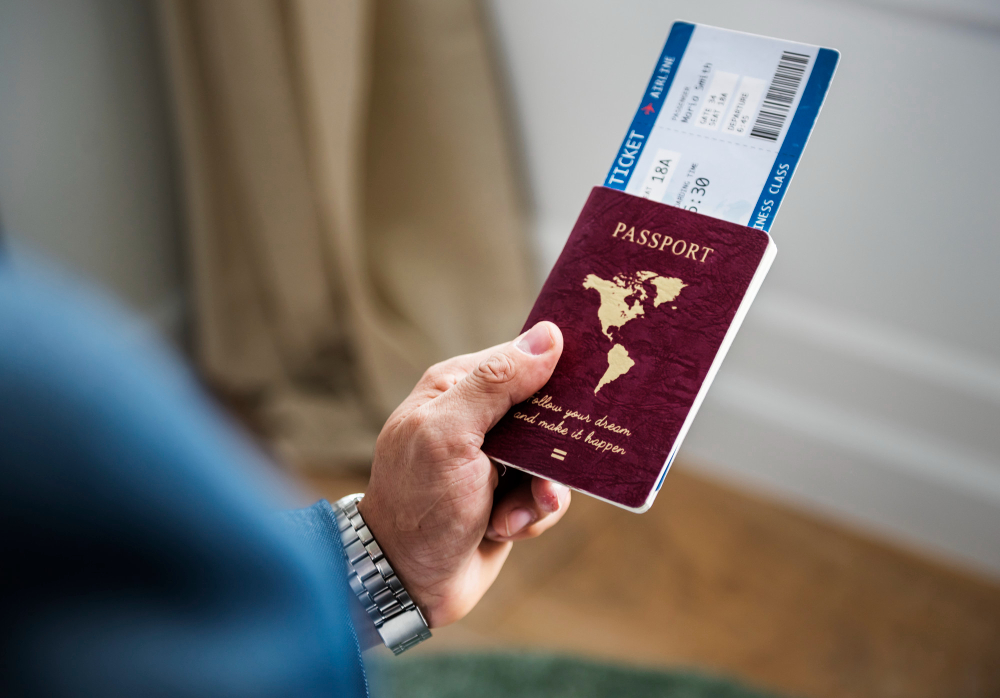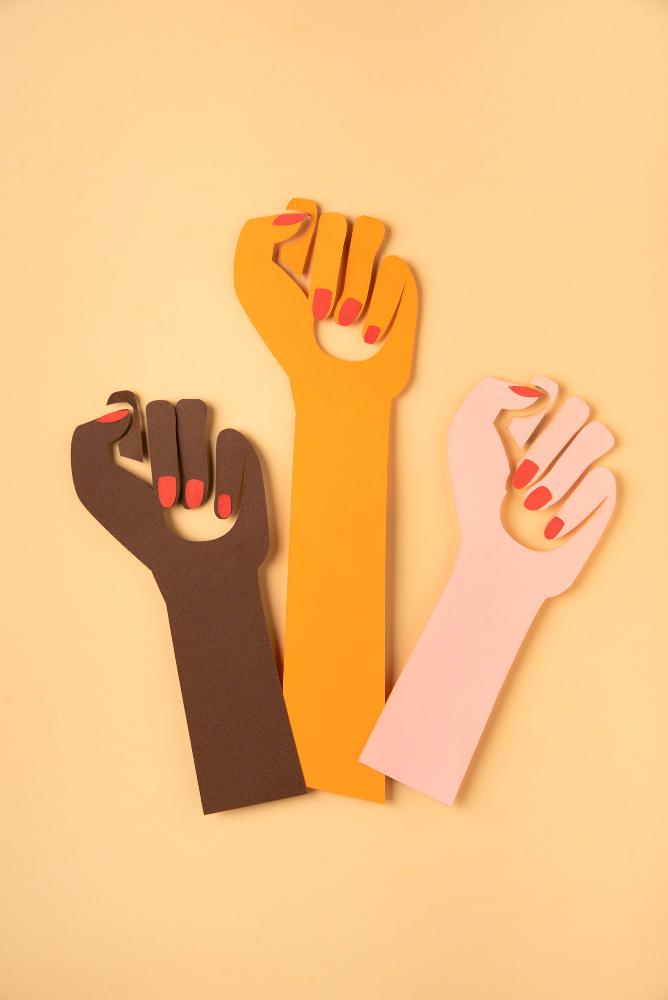The term “Passport Bro” refers to a specific way of thinking and living amongst men who decide to enter into (romantic) relationships with women from other cultures. The term “Passport Bros” (in German, “Passbrüder”), is based on the belief that, compared to the cultural changes observed in western societies, foreign women adhere more strongly to traditional values and modes of behaviour. The question being asked, however, is whether such a relationship really is advantageous for both sides.

RISE OF THE #PASSPORTBROS MOVEMENT
This trend has been establishing itself for around a year now, and shows no signs of slowing down; on the contrary, in fact, the number of adherents is increasing continuously. The hashtag #passportbros has now reported over 470,000,000 views on social media platform TikTok.
There are currently both supporters and opponents of the movement. These groups lead discussions, exchange and controversial debates surrounding the issue on a variety of online platforms such as YouTube channels, podcasts, Facebook groups and similar forums. The first part of the definition of “Passport Bros” is frequently criticised by people who believe this approach to dating conceals prejudices towards women harboured by men in the country of origin. Outsiders, meanwhile, seem divided over whether this unconventional approach to dating can be considered fair or not.

OLD, TRADITIONAL VALUES THREATENED BY FEMINISM?
In truth, this way of thinking is not a new development, as the perception of the western man as somebody who can support an attractive, exotic and needy foreign woman –harshly put, “saving her from poverty” – is anything but new. The trigger for this recent rise in the visibility of the movement lies, amongst other things, in women’s continuing emancipation in western societies. The western world has a long history of stereotyping, fetishising and hypersexualising women from developing countries.
The term “Passport Bros” is based on the conviction that some western women have taken on a feminist philosophy perceived as aggressive and hostile, and that this can lead to controversial relationships with men. Tired of the lifestyle and ideals of women in their own culture, these men view foreign women as potential partners who, in contrast to the development of apparently negative features amongst western women, have desirable qualities such as the readiness to function as a housewife and mother.
The Passport Bro mentality is emerging, in the view of its proponents, due to concerns relating to current western dating and marriage culture. These supporters view feminism and individualism as having a negative influence on the lives of many western men. An established community and website calling itself “theofficialpassportbros.com” already exists. Western women are described on the platform as toxic individuals displaying supposedly strenuous, provocative and manipulative behaviour. Passport Bros consider such modes of behaviour as incompatible with harmonious relationships and as factors contributing to the collapse in relationships between men and women on the western dating scene. Feminism has “spoilt” women from the perspective of many men, since it promotes ideas such as equal opportunity. Supporters of the Passport Bros movement, most of whom come from the United States or Great Britain, argue that western women lack respect and compassion towards men from their own culture.
BACKLASH FROM THE ENEMY, THE WESTERN WOMEN/PERSPECTIVE AND OPINION OF FEMINISTS
Searching for women considered sufficiently “traditional”, men with a certain income and the ability to work remotely set out to live in the continents of South America, South-East Asia and Eastern Europe. The official website of the Passport Bro Movement shows a selection of countries on these continents categorised as “attractive” for men to find potential partners, including Colombia, The Philippines, Brazil and others. In the countries listed, not just women but other (social) groups often have lower educational and career opportunities in comparison to western countries.
According to people who identify as feminists, there is a strong connection between the Passport Bro movement and the Incel culture, a group of men describing themselves as leading involuntarily celibate lives, and also viewed as misogynistic. Similarly to the Incels, Passport Bros believe feminism and the strengthening of women are responsible for their own individual challenges and failures.
The social media channels and forums featuring people such as Austin Abeyta, also known as “Digital Bromad”, use videos to present an exciting lifestyle surrounded by young, scantily-clad women, while he parties. This motivates numerous men to follow his example and join the community of the Passport Bros. Austin Abeyta argues that there are various reasons to date abroad. This is an example of Americans being stereotypically viewed as wealthy abroad, and makes establishing contacts and spending time with women easier. Advice is offered as to which nationalities are the “easiest” or “simplest”, the best places to get to know women, where life is cheapest, and other similar details.
This orientation reveals an inability to treat one another respectfully, as well as use responsible and sustainable planning and behaviour for an improved future for all. Instead, it bears witness to misogyny, in the opinion of supporters of feminism a nd many women. Even Andrew Tate, a prominent public personality in this world of toxic masculinity, has expressed his views regarding this. Perhaps unsurprisingly, he presents a disturbing perspective on the issue.

A summary of desired adjectives for ideal partners, authored by men from the west, includes terms such as “loving”, “submissive”, “compliant” and “willing”. This is a stark reminder of the practices of the mail-order bride industry (in German: “Versandhausbraut-Industrie”), occasionally considered a milder version of human trafficking. A television sketch by the name of “Mai Ling” by German comic Gerhard Polt from 1979 deals with similar themes, revealing sexist and racist stereotypes and prejudices towards Asian women in German-speaking society. In the sketch, the idea is demonstrated that (German) men would like, and be able, to select a ‘good’ (house-)wife from a “catalogue”, so to speak.

The wish of some men to treat women as dolls and children is worrying in the extreme. Viewed more closely, there is justified reason to be concerned that some men, particularly the so-called Incels, share a fascination for chastity and very young girls. One disturbing example of this is that in the Philippines, the legal age of consent is as low as twelve (!!!).
The decision to travel abroad to escape the dating culture in the western world and find a financially disadvantaged, i.e. willing, woman in other countries implies inherent inequality in the relationship.
In such a constellation, the man is aware that he has a superior position in relation to financial resources, and there is a danger that this frequently leads to power being exercised in a way that can result in sexual violence and exploitation.
In Thailand in particular, research in recent decades has focussed intensely on cross-border marriages between women from economically disadvantaged regions of Asia and men from wealthier countries. Thailand is an outstanding example of the trend, since it is a preferred destination for western male migrants seeking not just sexual relationships but also female partners, wives and care staff. At the same time, Thailand acts as an exporter of women to wealthier countries. It shows a growing trend in which more and more women are entering into partnerships with foreigners. This trend has led to marriage with a foreigner not just being considered a culturally rooted desire, but also a potential escape from poverty, even causing flows of migration in recent years as a result. Due to the adverse consequences for both the state and the individual, there is even powerful discussion in Brazil of the potential dangers of the Passport Bros mentality. In actual fact, it is the female partners of Passport Bros who are now positioning themselves against feminists, insisting that, contrary to the assumption of the feminists, they are neither uneducated nor poor. As traditional women, they do not view cleaning the home and cooking as a burden. They do not view the relationship with their husbands as an imbalance, but as a kind of symbiosis.
SUMMARY
This is not simply about individual preferences for female partners from different cultural context; instead, the phenomenon exceeds limits and has a negative effect on individualistic, demographic and social developments. It represents an obstacle to progress in the process of independence for women, since the existing power relationship appears unbalanced as a result. A man with an improved and secure lifestyle could, due to failures in his home country, tend to meet the stereotype of the successful white man abroad.
It should be emphasised that not all relationships between women from developing countries and western men are of this nature, or are afflicted by such motives, even unconsciously. It is therefore inappropriate to generalise.
Looked at hypothetically, the question needs to be asked as to what woman, with her own dreams and goals, would make herself financially dependent on a man from a country unknown to her in a scenario in which she would have all opportunities both in her home country, in the dating market there, and in the western world.
It cannot be dismissed that this phenomenon is connected with the disparate educational and career opportunities enjoyed by western men, and the exploitation of these differences.
Translated by Tim Lywood
#Datingmarkt #Ungleichgewicht #Passport-Bros #Feminismus #traditionelleGeschlechterrollen #globalesPhänomen #AgainstHumanTrafficking #GegenMenschenhandel #EndExploitation #EndTrafficking #HopeForTheFuture #Österreich
